 Petzlover
Petzlover Smoke is originated from United Kingdom but Traditional Siamese is originated from Thailand. Both Smoke and Traditional Siamese are of same weight. Smoke may live 5 years less than Traditional Siamese. Both Smoke and Traditional Siamese has same litter size. Both Smoke and Traditional Siamese requires Moderate Maintenance.
Smoke is originated from United Kingdom but Traditional Siamese is originated from Thailand. Both Smoke and Traditional Siamese are of same weight. Smoke may live 5 years less than Traditional Siamese. Both Smoke and Traditional Siamese has same litter size. Both Smoke and Traditional Siamese requires Moderate Maintenance.
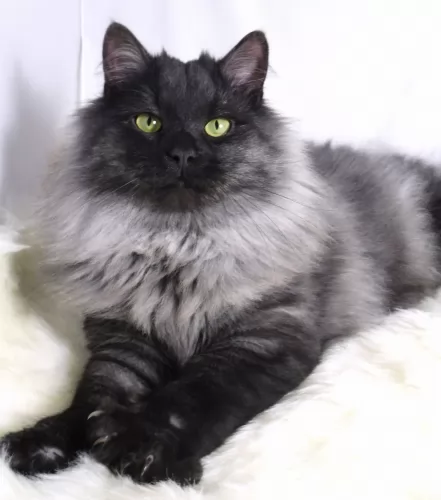 A Smoke cat is a domestic long-haired cat. The beautiful coat coloring usually comes with a silvery undercoat, with the topcoat having color points.
A Smoke cat is a domestic long-haired cat. The beautiful coat coloring usually comes with a silvery undercoat, with the topcoat having color points.
In effect, the Smoke cat isn’t a cat breed as such but is describing the color of the cat. It could be a Persian cat. It seems the Smoke cat has its origins in the 1800s in the UK from where it seems to have originated.
No one really knows the true origin of the Smokes cat but it would seem as though they evolved from breeding silver tabbies to blacks and blues.
While the early Smokes had green eyes, breeding has resulted in there being copper eyes as well.The Asian Smoke is a colour variation of the Asian that was created in the UK in the 1980s.
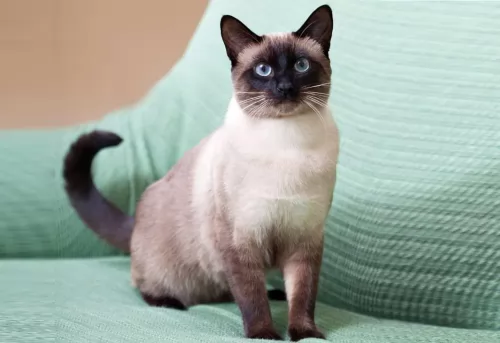 There are now three types of Siamese cats. The Traditional Siamese is said to be the original cat imported from Thailand.
There are now three types of Siamese cats. The Traditional Siamese is said to be the original cat imported from Thailand.
The Classic was the type that was common in the 50’s, 60’s and 70’s. The original Siamese cat became one of the most popular breeds in Europe and North America in the 19th century.
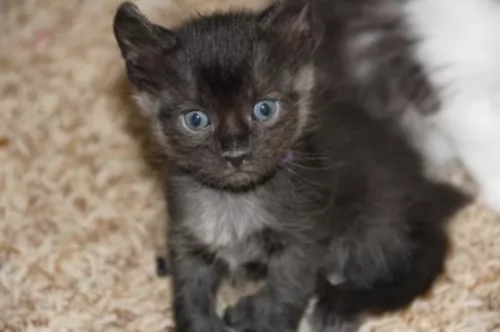 When Smoke kittens are born they have gray and white markings around each eye and around the muzzle.
When Smoke kittens are born they have gray and white markings around each eye and around the muzzle.
Essentially the Smoke cat can be black, cream, blue, red, or even tortie. Smoke actually means that the base of the hair is whitish and the rest of the hair is black, red or blue etc.
These cats can be different sizes but will no doubt be medium-sized and weigh in the region of 3 to 6kg. They are lean and muscular and can have different eye colors too – green or gold.
There are so many cat breeds and they have heaps of colors and patterns. The domestic long-haired cat is capable of a wide range of temperaments.
You can be sure that these cats are playful, fun, curious, and intelligent. Some will be more vocal than others but they will all thrive on the attention they get from their human owners. They are friendly, affectionate cats who will bond closely with their human family.
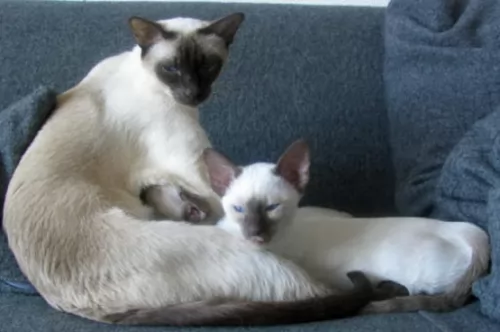 The Traditional Siamese cat is medium-sized, lean, and muscular and weighs between 3 and 6kg. The coat is short and he is considered a medium shedder.
The Traditional Siamese cat is medium-sized, lean, and muscular and weighs between 3 and 6kg. The coat is short and he is considered a medium shedder.
The kittens of these cats are born white and the coloring comes in over the next days and weeks. The head of the Traditional Siamese is well proportioned to its body size.
The medium size ears are slightly rounded at the tip and the eyes are large and bright blue in color.
The coat is short, sleek, and soft and accepted colors are cream with chocolate, brown, lilac, red, tortie or blue points.
The personality of the Traditional Siamese is loud, vocal, and demanding. These cats let you know precisely what they want and it is almost like having a human companion in the house.
They love to give their human owners lots of attention as well. They’re intelligent, curious, playful, and energetic.
The Traditional Siamese cat isn’t really recognized by the Cat Fanciers Association (CFA) anymore as the breed’s temperament has changed so much.
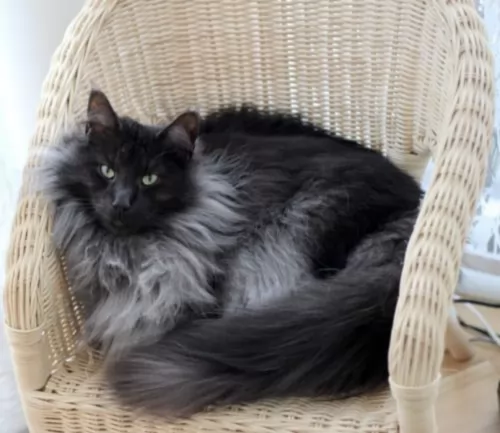 Because the Smoke isn’t a cat breed as such but rather a color shade found in some long-haired cats you can’t be sure what your cat will really look like and how he will behave.
Because the Smoke isn’t a cat breed as such but rather a color shade found in some long-haired cats you can’t be sure what your cat will really look like and how he will behave.
They could be energetic, playful, or quiet and relaxed. They might be more vocal and want to talk to you or they may be content just to be wherever you are.
When you bring a Smoke cat into your life, one thing is sure, with his friendly and loving nature your world will become meaningful, as any beautiful cat such as the Smoke is guaranteed to bring in lots of smiles, joy, and love.
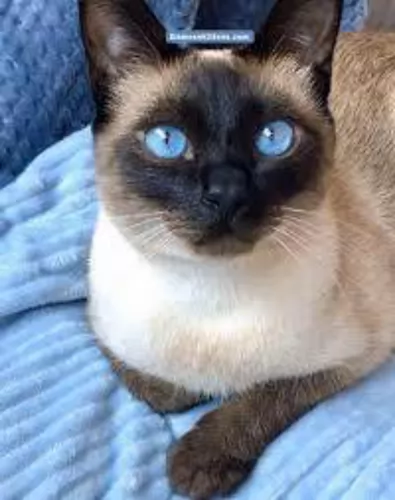 The Traditional Siamese cat is such an amazingly intelligent animal and sometimes they can become quite human.
The Traditional Siamese cat is such an amazingly intelligent animal and sometimes they can become quite human.
These are not your traditional cool, independent, sleep all day kind of felines and people liken them to having a dog as a pet. They love to play, and they are so active you could even put a leash on one and take it for a walk.
They are energetic, local, and lively. They are such affectionate cats too and they get on well with children and with other pets.
When you bring a Traditional Siamese cat into your life, it is like you are bringing in a human companion, except that the Traditional Siamese is far more amicable than many humans.
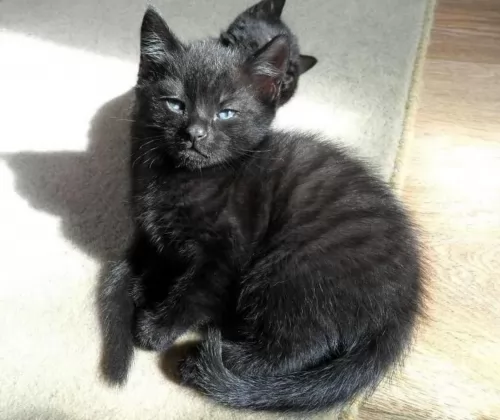 Just like it is wonderful to stroke and pet your pet for his health’s sake, it is also therapeutic for you to stroke your cat.
Just like it is wonderful to stroke and pet your pet for his health’s sake, it is also therapeutic for you to stroke your cat.
Vomiting is one way that you can tell that your cat is sick. He will vomit if he has eaten something he shouldn't have or if he is feeling sick. You must keep an eye on his vomiting as he can become dehydrated and then he wlll need to get to the vet right away.
FLUTD is often brought on by cats that are overweight or unhappy and stressed. It can cause a cat to be miserable, vomit and have a temperature.
You’ll see your cat battling to urinate, he will cry in pain when urinating and be pacing and unsettled. This is an illness that requires urgent veterinary attention.
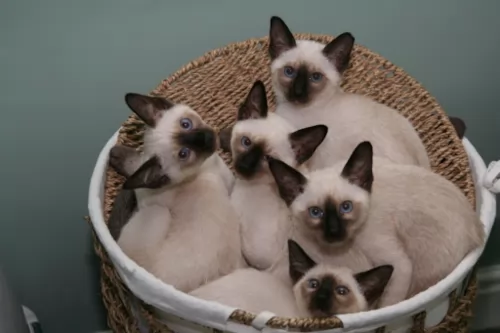 Avoid obesity. Siamese cats are prone to obesity and these slim cats can’t afford weight gain. Extra weight can put a whole lot of pressure on the cat’s joints and they can also develop other problems such as diabetes. The label of the commercial cat food you give your Traditional Siamese will indicate how much food your cat should get a day based on your cat’s weight.
Avoid obesity. Siamese cats are prone to obesity and these slim cats can’t afford weight gain. Extra weight can put a whole lot of pressure on the cat’s joints and they can also develop other problems such as diabetes. The label of the commercial cat food you give your Traditional Siamese will indicate how much food your cat should get a day based on your cat’s weight.
Diet plays a massive role in the health of a cat, and inferior cat foods can mean you spending more money at the vet because of digestive issues.
If you are in any kind of doubt as to what to feed your cat, rather speak to your vet about what and how much to feed him. Your cat is a carnivore and it is most important to feed your cat foods high in protein.
Take your cat to the vet whenever he is sick and also just for a general check-up. You want to make sure that your Traditional Siamese is free from any health problems as well as parasites.
Also, make sure your cat is always up to date with his vaccinations as there are some cat illnesses such as feline panleukopenia, also known as distemper, that can kill your cat.
It is always a good idea as well to spay or neuter your Siamese to prevent unwanted pregnancies.
If your Traditional Siamese has any health conditions, your vet can help provide you and your pet with a treatment program.
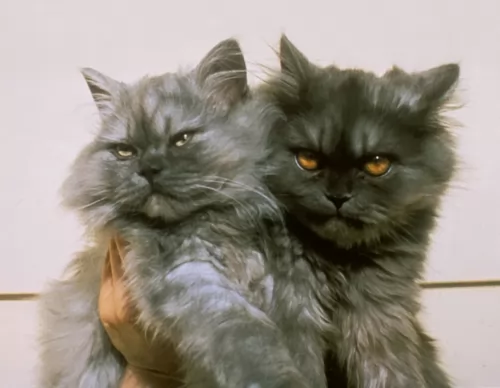 Smokes will require more care than other long- haired cats because their coats are fairly fragile and need to be treated gently and with care. Gentle brushing once or twice a week will keep the coat in top condition.
Smokes will require more care than other long- haired cats because their coats are fairly fragile and need to be treated gently and with care. Gentle brushing once or twice a week will keep the coat in top condition.
The trend today is to brush your pet’s teeth but this can be painful and traumatic for a cat and he can easily lash out in fear, resulting in bites and scratches. The pet groomer and vet can rather look inside your cat’s mouth and tell you if there is any bad tooth that needs attending to.
Provide your cat with good food. Your cat is a carnivore and he must eat meat to ensure his health. The best commercial cat foods are high in protein to ensure your cat gets a balanced meal to promote good health. If in doubt, speak to your vet about the best cat food there is for your furry feline friend.
Provide a constant supply of fresh, cool water.
Provide your cat with a comfortable, soft bed.
Provide him with a litter tray and ensure this is cleaned of the feces every single day.
Have him vaccinated against the major feline diseases. Ensure he goes to the vet when he is in pain or shows signs of illness.
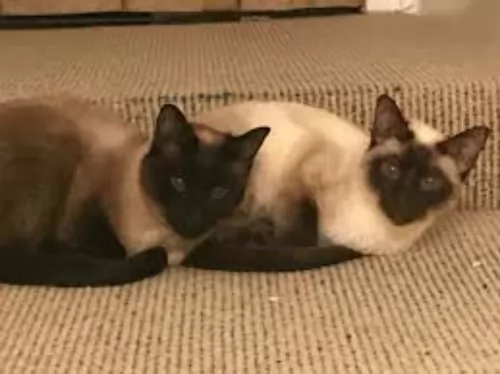 To care for your Traditional Siamese, you need to feed him a high protein diet. Always read the labels of the cat food you buy to ensure that the proteins included come from animal sources and not from plants.
To care for your Traditional Siamese, you need to feed him a high protein diet. Always read the labels of the cat food you buy to ensure that the proteins included come from animal sources and not from plants.
Brush your Traditional Siamese cat regularly. He has a short coat so once a week will be enough to keep it shiny and clean.
You can feed your cat and provide all he needs, but nothing will be more important to your cat than showing your love for him by spending lots of time with him and showering him with love.